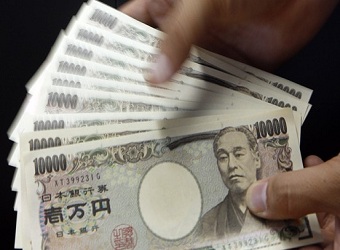The yen eased on Tuesday as Japan’s sales tax rose, although the dollar weakened after the head of the Federal Reserve defended the central bank’s loose policy and highlighted slack in the economy.
The dollar index slipped near 80.06, off a two-week high on Monday just below 80.30. Against the yen, the dollar inched up over 103 yen, close to the three-week high of 103.44 yen struck a day earlier, although it underperformed the euro, which posted sizable gains against the yen.
Japan’s Tankan survey was a slight disappointment and raised doubts about whether activity will continue to improve this year. It will keep alive expectations the Bank of Japan may ease policy further if the pain from the sales tax hike proves worse than expected, analysts said.
|
|
Price |
|
Change |
%Change |
|
USD/JPY |
— |
|||
|
EUR/JPY |
— |
|||
|
AUD/USD |
— |
|||
|
USD/CNY |
— |
|||
|
USD/SGD |
— |
|||
|
NZD/USD |
— |
|||
|
USD/HKD |
— |
|||
|
USD/INR |
— |
|||
|
AUD/USD |
— |
In a fresh setback for dollar bulls, though, Fed chair Janet Yellen said on Monday that “considerable” slack still existed in the U.S. jobs market and that further monetary stimulus could be effective.
Her comments somewhat countered those made last month, when she suggested the possibility of rate hikes from early 2015.
Still, with the Fed on track to withdraw monetary stimulus, any further easing by the BoJ is expected to weigh on the yen, said Jane Foley, senior currency strategist at Rabobank.
Indeed, traders said there was plenty of demand for options betting on gains by the dollar in coming months.
Commodity Currencies Rise
Improving risk sentiment, partly on hopes of fresh stimulus from China, the world’s second-largest economy, have also weighed on the Japanese currency of late. The yen is sought during times of uncertainty and financial market stress.
In particular, the yen has fallen sharply against higher-yielding commodity currencies. The New Zealand dollar reached a fresh six-year high of 89.90 yen on Tuesday, after rallying 3.6 percent in the first quarter.
The kiwi has been in demand after the Reserve Bank of New Zealand became the first central bank of a developed country to start normalizing policy this year.
The Australian dollar saw some choppy swings. A slight improvement in China’s official Purchasing Managers’ Index initially helped the Aussie, though a private survey pointed to a contraction in activity in March.
The Aussie then extended its gains to reach a four-month high above $0.93 after the Reserve Bank of Australia kept interest rates unchanged at 2.5 percent, as expected.
But it quickly gave back those gains after the RBA noted the currency was still high by historical standards. It last stood around $0.92, slightly lower on the day.
The euro climbed to almost $1.38, having rebounded from Monday’s low just above $1.37 after data showed easing price pressures in the euro zone. Most traders do not expect the European Central Bank to ease policy on Thursday, despite the drop in inflation last month to 0.5 percent.
As such the euro was up 0.35 percent against the yen near 143 yen.
Source: Reuters


